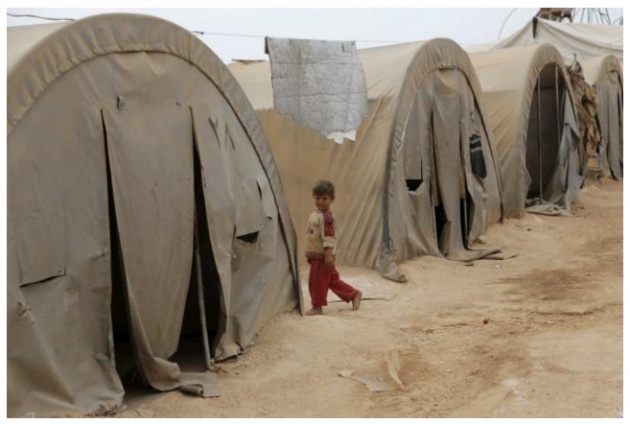
EU leaders meeting in Brussels must deliver on promises of cash and immigration officers to tackle the refugee crisis, the European Union’s executive said on Wednesday as it stepped up negotiations with Turkey.
“Promises are not enough. There has to be proof of action,” European Commission President Jean-Claude Juncker told the European Parliament in a speech outlining his expectations for a summit of the 28 heads of state and government on Thursday.
Juncker said member states had offered so far only 48 of 775 seconded staff requested by EU border agency Frontex and almost none of more than 2 billion euros they collectively pledged last month to foster employment in Africa and aid Syrian refugees.
“Member states have talked the talk. Now they need to walk the walk,” Juncker’s deputy, Frans Timmermans, said as he headed to Turkey for talks with an awkward neighbour through which most of the Syrians who reached Europe this summer had travelled.
The fourth EU summit in six months to be dominated by the migration crisis will broadly endorse measures proposed by the Commission and agreed by ministers in recent weeks.
Much has yet to be implemented and questions remain over how far the EU can manage hundreds of thousands of migrants whose chaotic movements have divided EU leaders and jeopardised the bloc’s open internal borders. Still less is it clear that Europe can stem future movements of possibly millions of people.
But EU diplomats say there is a growing sense of collective purpose. “The penny has finally dropped that this is a massive issue,” one said. “The whole machine is focused on this.”
Measures include strengthening cooperation and controls at the external borders of the bloc, mainly in Greece and in Italy, in an effort to better identify those arriving and to speed up the expulsion of migrants who do not qualify for refugee status.
A draft of the meeting’s conclusions, seen by Reuters, makes only brief reference to plans to disperse asylum seekers around the EU—an issue which provoked bitter feuding among leaders.
With veteran German Chancellor Angela Merkel, who will visit Turkey at the weekend, seeing her popularity slipping after making bold moves to take in Syrian refugees, diplomats see a consensus now on demonstrating to voters that the EU is also trying to limit the numbers arriving in Europe.
TURKISH KEY
For many, the key to that is now cooperation with Turkey, host to about half the more than four million Syrians now living outside their country. President Tayyip Erdogan has engaged in negotiations that the Commission hopes will see Turkey use aid to improve conditions for refugees, cooperate with Greece on border control and take back rejected migrants from Europe.
In return, officials say, Ankara is pressing for easier visa access for its citizens to the EU, more financial support and more progress in its long stalled application for EU membership.
That has given many European governments a dilemma. Some, among them Germany, do not think such a populous, Muslim nation should be let in. Many have qualms about Erdogan’s human rights record, including his treatment of minority Kurds and the media.
Slovak Prime Minister Robert Fico, a vocal critic of Brussels on migration, told his parliament: “The EU is naive to think Turkey will solve its problems just on account of its big blue eyes. On the other hand, Turkey expects too many benefits for cooperation with the EU. I hope we’ll meet in the middle.”
EU officials and diplomats acknowledge problems dealing with Turkey, whose politics are volatile after a bombing in Ankara that killed nearly 100 ahead of a snap election on Nov. 1. But without its cooperation, it will be hard to control immigration.
“To get a solution, the only key we have in our hand in Turkey,” a senior EU politician said. “And Erdogan knows this.”
One proposal for a more controlled intake of Syrians in need of protection is to sharply increase resettlement of refugees directly from Turkey, Jordan and Lebanon. So far, states have offered to take only a token 22,500 in a new EU scheme.
EU Migration Commissioner Dimitris Avramopoulos, who is in Turkey, told Reuters: “We need to resettle more refugees ... And offer safe ways for them to reach Europe.”
The summit chairman, European Council President Donald Tusk, plans a wide-ranging discussion over dinner on Thursday on how the EU should deal with Turkey and with a Syrian conflict rendered even more complex by Russia’s military intervention.
He noted that Moscow, another challenging neighbour, opposes a Turkish call for “safe zones” in Syria for which Ankara wants EU support. “An agreement with Turkey makes sense if it effectively reduces the inflow of refugees,” he said. “Concessions will only be justified when this goal is achieved.” (Additional reporting by Robin Emmott, Francesco Guarascio, Robert-Jan Bartunek and Jan Strupczewski in Brussels and Tatiana Jancarikova in Bratislava; Editing by Mark Heinrich)



